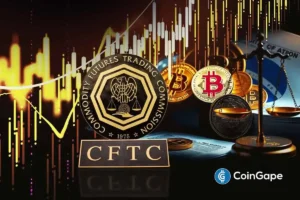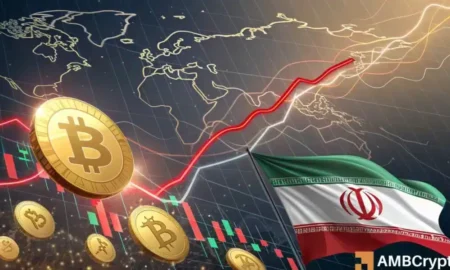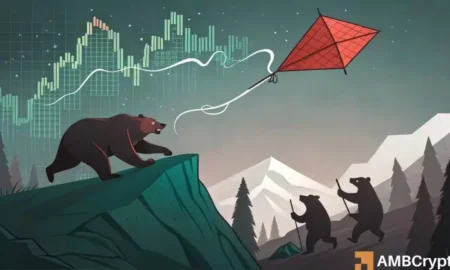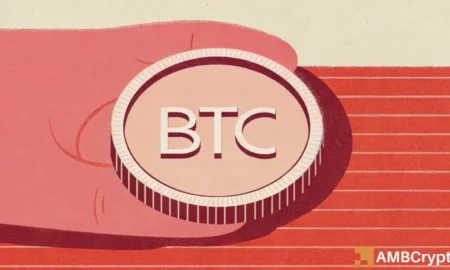Title: Trump Critiques Powell as Economic Concerns Rise: A Deep Dive into Fed Policies and Market Reactions
Introduction
In recent developments, former President Donald Trump has intensified his attacks on Federal Reserve Chairman Jerome Powell, claiming that his policies could lead to a significant economic slowdown. Trump, known for his forthright approach, suggests that Powell’s refusal to lower interest rates could spur recessionary conditions for the U.S. economy. Experts in finance are divided, with many anticipating that the Fed may need to adjust its interest rate policies amid ongoing economic uncertainties. This article explores Trump’s criticisms, market impacts, and forecasts regarding interest rates.
Trump’s Direct Criticism of Powell
On April 21, Trump took to Truth Social to express his frustration with Powell, labeling him a "major loser" for not acting on interest rates. He stressed that favorable trends in prices could lead to diminished inflationary pressures; however, if the current interest rates persist, a recession could loom ahead. Trump argued, “With these costs trending so nicely downward, just what I predicted they would do, there can almost be no inflation, but there can be a SLOWING of the economy unless Mr. Too Late lowers interest rates, NOW.” His statements reflect his belief that immediate action from the Fed is crucial for preventing a downturn in the economy.
Market Reactions to Trump’s Remarks
Following Trump’s critiques, the stock markets in the United States experienced a notable decline. The S&P 500 dropped by 2.4%, the Nasdaq fell by 2.5%, and the Dow Jones plummeted nearly 1,000 points—equating to about a 2.5% loss. This downturn is significant as the S&P 500 is facing a year-to-date decline of over 12%, while the Nasdaq has decreased by nearly 18%. Despite these stock market losses, the cryptocurrency landscape exhibited resilience, with Bitcoin reaching a four-week high of $88,500 shortly after, revealing a divergence in how different financial markets are reacting to geopolitical and economic factors.
Cryptocurrency Market Stability
While traditional equity markets have shown volatility in the aftermath of Trump’s comments, the cryptocurrency sector has managed to maintain relative stability. Bitcoin’s upward movement, reaching approximately $88,175, supports the notion that cryptocurrencies may be serving as an alternative asset during these turbulent times. Nevertheless, the Crypto Fear and Greed Index reflects mixed sentiment, indicating strong fear levels in earlier months but recovering to a neutral stance recently. As the cryptocurrency market continues to evolve, it serves as a litmus test for broader economic confidence.
Legal Implications of Trump’s Criticism
The potential implications of Trump’s criticisms extend beyond name-calling; they raise questions about the independence of the Federal Reserve. Speculation has surfaced about whether Trump could attempt to remove Powell from his position, despite Powell’s assurances that such a move would not be legal. Market analysts warn that any attempt to interfere with the Fed’s independence could trigger severe market reactions, including higher yields, a depreciating dollar, and equity sell-offs. This tension underscores the delicate balance between government influence and market perception, particularly regarding the Fed’s role in economic management.
Outlook on Federal Reserve Policy
While Powell has resisted pressure from Trump to implement rapid interest rate cuts, many analysts predict that the Federal Reserve may still need to adjust its rates this year. Citigroup has forecasted a potential rate cut as early as June and anticipates a cumulative reduction of 125 basis points by the end of 2025. This forecast suggests a readiness among certain financial experts to accommodate adjustments even in the face of resistance from Fed leadership. As economic indicators evolve, the Fed’s decisions will significantly impact markets and the broader economy.
Conclusion
As Trump continues to target Powell amidst concerns of economic slowdown, the landscape of U.S. financial markets remains precarious. The stock markets’ reactions demonstrate investor sensitivity to policy changes, while cryptocurrencies offer a potential refuge during times of uncertainty. The tension surrounding the Federal Reserve’s independence and potential interest rate movements will play a crucial role in shaping both market sentiments and overall economic health in the coming months. As we watch these developments unfold, all eyes remain on the Federal Reserve and the intricate interplay between politics and economics.
















